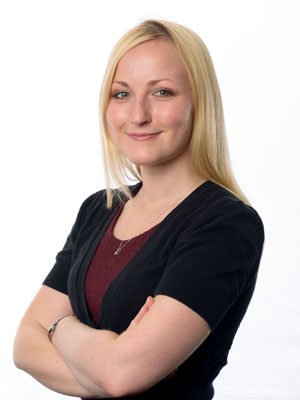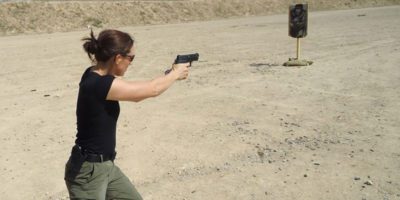Abbie Hutty is a Spacecraft Structures Engineer at Airbus Defence and Space in Stevenage, where she is currently working on the ExoMars Rover mission; Europe’s first rover mission to Mars. She holds a Master’s degree in Mechanical Engineering from the University of Surrey, where she graduated first in her class. Abbie co-ordinates a team of specialists to achieve a rover structure that will survive the rigors of a rocket launch, descent through the atmosphere of the Red Planet, and landing on the surface, followed by an operational lifetime in the punishing Martian environment.

“…I love that engineers are furthering technology and coming up with new solutions – sometimes we develop a solution for one problem, and then find loads of other problems that our development will also solve…”
Engineering: A logical combination of the creative and the technical
My favourite subjects at school were the creative ones – DT [Design and Technology] and Art, but I also enjoyed the technical challenge of subjects like Maths and Physics. Engineering was the logical combination of both of these areas. At that age I considered my ideal job to be well-paid, stable, and office-based, but in a role that would both challenge me and allow me to be creative – engineering was the perfect match!
My ideas developed into solutions that will go and do their job in space
I love that I have the opportunity to be creative in my job – I am always having to think laterally and come up with new solutions or ways of approaching the problem. My role covers all aspects of the design lifecycle, from concept design through manufacturing, and ultimately to testing and final delivery.
I regularly have to sketch out my design ideas to explain them to my colleagues, and then work together to develop them into complete solutions and see them get built. I get a great buzz from going to see my finished, manufactured parts ready to go and do their job in space!
Different specialists working together
Engineering normally needs lots of different specialists to work together to come up with a design that works across all of their areas of specialism – for example I work with materials specialists, thermal engineers, 3D designers, electronics engineers, and so on.
We might not understand the complete detail of each other’s specialties – so we have to be very good at communicating what our requirements are, how important each aspect is to our design, and what we can be more flexible on.
Learning from other disciplines how our final spacecraft has to work
I find it fascinating learning about all the other disciplines and how our final spacecraft has to work together as a system. You also have to be able to explain your design and the decisions that you made to reach it, to your customer, or your management. They might not understand all the science behind your reasoning, so it’s important to be able to describe your process of thought well, so that they get the confidence that your design is the right one for their needs.
Engineering – from green energy to Formula One to robotics to medical implants…
One of the great things about engineering is how broad the applications are. From my class at university I have friends working in green energy, Formula One, robotics, medical implants.
It’s really interesting seeing all the different things the same knowledge can be applied to. Even with the technology my team are developing for the Mars Rover there are potential uses within many other areas, like bomb disposal robots, unmanned vehicles for exploration and recovery in disaster zones, and many other things.
Developing solutions for one problem and finding other problems our development will solve
I love that engineers are furthering technology and coming up with new solutions – sometimes we develop a solution for one problem, and then find loads of other problems that our development will also solve. The fact that we get to break new ground and develop mankind’s understanding is a great feeling. Even if only slightly, everything we develop is improving the world.
Helping others to understand engineering better
I think engineering is one of the least well understood careers out there – probably in part because the applications are so diverse. For a variety of reasons we have a massive shortfall of engineers predicted in this country in the coming years – so we need loads more young people to think about becoming engineers.
A big part of that is just demonstrating to them what engineers really do so that they can make informed decisions about whether that appeals to them or not. That’s why I think those of us already employed in the profession have an obligation to tell people about what we do and help address the misconceptions that are widely held across society.
Opening people’s minds
We need young people (and their teachers and parents) to understand the reality of what engineering is, what a career in the field might be like, and whether they would enjoy being an engineer too.
The IET Young Woman Engineer of the Year Awards 2015
The IET Young Woman Engineer of the Year Awards are now open for entries! The winner will be announced on 3rd December. Why not join us? For more information, visit www.theiet.org/ywe. Entries must be submitted by 26th June 2015 at 17:00.
https://www.facebook.com/TheInstitutionofEngineeringandTechnology
https://www.linkedin.com/company/iet





